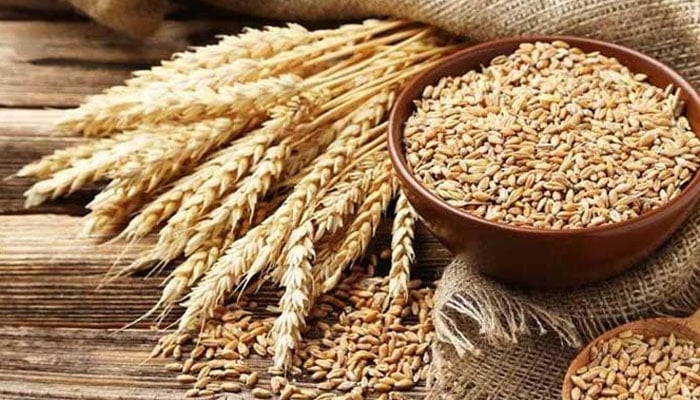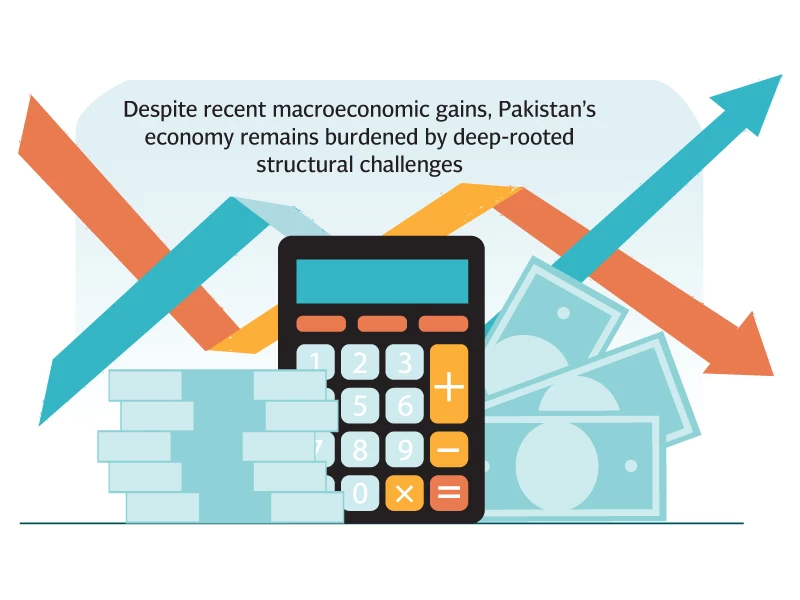By Mehtab Haider
Published in The News on March 11, 2023
ISLAMABAD: Pakistan’s wheat production target is likely to hit by 1.7 million tonnes for the current fiscal year as the Met office has forecast heavy rains for two weeks, starting from the third week of March.
Officials said on Friday that wheat production in Punjab is set to witness a major blow during the current fiscal year 2022-23, amid negative impacts of climate change as well as crop substitution, sowing other crops than wheat for profitability.
He added that the wheat production is likely to remain around 26.7 million tonnes as against the envisaged wheat production target of 28.4 million tonnes.
Besides, there is a looming shortage of wheat in the next fiscal year as well and the government will have to count on the import of wheat in order to meet the domestic requirements of staple food. The import of wheat is going to witness an upsurge at a time when the country is facing the worst-ever dollar liquidity crunch.
“There will be no other option but to import 3-3.5 million tonnes of wheat for the next fiscal year in order to meet domestic as well as Afghanistan’s requirements. This is more than the import target of 2.6 million tonnes of wheat for the current fiscal year,” top official sources confirmed while talking to The News here on Friday.
When Secretary Ministry of National Food Security & Research Zafar Hassan was contacted for inquiring about the wheat production target and reasons for crop substitution in Punjab, he replied that the wheat production target was not revised so far.
However, he said the wheat production is expected to remain around 27 million tonnes, whereas the actual figure will be obtained after harvesting. He added that the crop substitution was towards maize and oilseeds mainly due to better prices.
Official data available with The News disclosed that the government had sought wheat sowing area target of 22.85 million acres in the country for the fiscal year 2022-23, including a sowing target of 16.48 million acres in Punjab. But only 16.01 million acres could be sown in the province till the latest compiled estimates, witnessing an achievement of 97.17 percent target.
It is relevant to mention here that in Punjab, the crop substitution occurred as farmers diverted towards oil seeds, keeping in view of getting improved returns.
Interestingly, Sindh surpassed its sowing target of wheat as the staple food was sown on the area of 2.945 million acres as against the sowing target of 2.79 million acres for the current fiscal year.
According to initial estimates, Sindh has harvested 25 percent of its cultivated area where per acre yield recorded as 40 tonnes.
In KP, the wheat was sown on area around 1.933 million acres as against the envisaged target of 2.22 million acres, achieving only 87.07 percent target.
Balochistan achieved only 77.21 percent wheat sowing target as wheat was sown on 1.05 million acres as against the target of 1.36 million acres.
If the anticipated wheat production remains hovering around 26 million tonnes, the government will have to import at least 3.5 to 4 million tonnes of wheat in the next financial year at a time when the country was passing through severe dollar liquidity crunch.
Even, the anticipated wheat production target falls in danger zone as recently Met office has shared its forecast with the Ministry of National Food Security & Research that the country might witness different spells of heatwaves within next three months, including March, April and May 2023.
The heatwave had negatively impacted wheat production by at least 10 to 12 percent in the last financial year.
The estimated requirement of import of wheat also included one million tonnes of wheat for Afghanistan.




